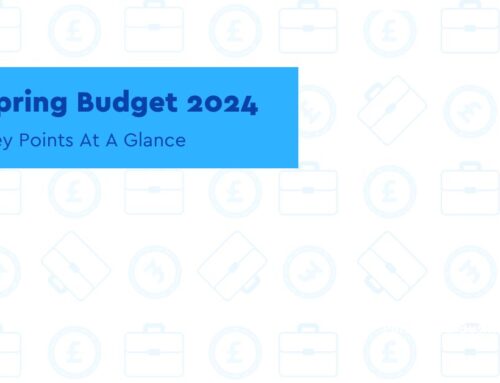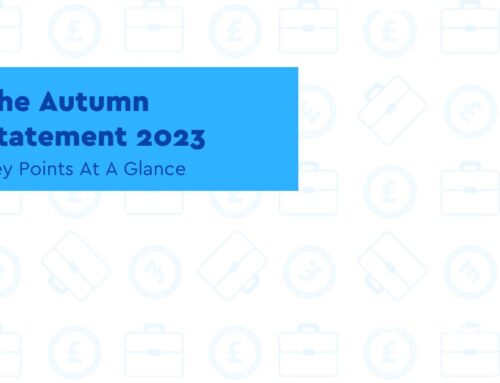Changes to late payment penalty regime for taxpayers
Key Points
- The taxpayer will not incur a penalty if the outstanding tax is paid within the first 15 days after the due date
- If tax remains unpaid after day 15, the taxpayer incurs the first penalty
HMRC has clarified changes to the late payment penalty scheme which will start to come into force from April 2022.
There are two late payment penalties that may apply; a first penalty and then an additional or second penalty, with an annualised penalty rate. All taxpayers, regardless of the tax regime, have a legal obligation to pay their tax by the due date for that tax.
The taxpayer will not incur a penalty if the outstanding tax is paid within the first 15 days after the due date. If tax remains unpaid after day 15, the taxpayer incurs the first penalty. This penalty is set at 2% of the tax outstanding after day 15. If any of this tax is still unpaid after day 30, the penalty will be calculated as 2% of the tax outstanding after day 15 plus 2% of the tax outstanding at day 30. In most instances this will amount to a 4% charge at day 30.
If tax remains unpaid on day 31, the taxpayer will begin to incur an additional penalty on the tax that remains outstanding. It accrues on a daily basis, at a rate of 4% per annum on the outstanding amount. This additional penalty will stop accruing when the taxpayer pays the tax that is due.
To avoid a penalty or penalties, the taxpayer will need to either pay or approach HMRC to agree a ‘time to pay’ arrangement.
The reforms come into effect for VAT taxpayers from periods starting on or after April 1, 2022, and for taxpayers in income tax self assessment (ITSA), from accounting periods beginning on or after April 6, 2023 for taxpayers with business or property income over £10,000 per year (that is, taxpayers who are required to submit digital quarterly updates through Making Tax Digital for ITSA).
For all other taxpayers in self assessment, the changes will apply from accounting periods beginning on or after April 6, 2024.
Extended loss carry back for businesses
Key Points
- The extension applies to accounting periods ending between April 1, 2020 and March 31, 2022
- Companies may offset trading losses against total profits of the previous three years, rather than one
The trading loss carry-back rules have been temporarily extended for both income tax and corporation tax purposes to support businesses affected by the pandemic.
For accounting periods ending between April 1, 2020 and March 31, 2022, companies may offset trading losses against total profits of the previous three years, rather than the usual one year.
The loss carried back to the extended period is subject to a cap of £2m per year. This cap also applies to groups of companies, while similar rules apply to unincorporated businesses.
Extended loss carry back claims will be required to be made in a return. However, where the claim does not, and could not, exceed £200,000, it can be made outside the tax return. This means that any stand-alone or group company with losses capable of providing relief up to a maximum of £200,000 may make a claim in respect of a relevant accounting period without having to wait to submit its company tax return.
Unincorporated businesses may also make claims of up to £200,000 outside a tax return, but no online facility has yet been provided for these.
As with the current one-year carry back, the extended loss relief is limited to trading losses. The trading losses in question can be carried back against total profits of earlier accounting periods up to the capped amount.
In calculating if the £200,000 de minimis is met, the company must assume:
- All capital allowance or other reliefs available to it that would result in an increase of the loss are claimed
- No amounts are surrendered as group relief
- Losses have been carried back to the previous accounting period.
Taxpayers saved £30m inheritance tax bill by gifting
Key Points
- The annual gift allowance allows taxpayers to gift only £3,000 each year without incurring IHT
- The annual gift allowance and small gift exemption cannot be combined and used on the same person
The most recent figures show that taxpayers saved £30m in inheritance tax (IHT) through gifting last year with many taking advantage of the £3,000 annual gift allowance.
The annual gift allowance allows taxpayers to gift only £3,000 each year without incurring IHT. However, this figure has now been frozen for 40 years and should be £11,760 if it had kept pace with inflation.
Taxpayers can also use the small gifts exemption which allows individuals to make unlimited gifts of £250 each year but this has also been unchanged and if it had increased with inflation then it would be closer to £1,096. This has to be given to different individuals and cannot be accrued, for example with monthly payments to the same beneficiary.
Gifting by taxpayers last year consisted of £25m through the £3,000 annual IHT exemption and £5m through the small gift exemption for gifts less than £250.
Individuals that have not used their £3,000 annual gift exemption, can carry this forward to the following year. Taxpayers should note that the annual gift allowance and small gift exemption cannot be combined and used on the same person.
The amount saved in IHT through gifting only accounts for 0.6% of the £5.3bn which HMRC brought in through IHT last year.
When the tax was first introduced it was intended to affect only the very wealthy, but the rise in the value of homes, particularly in the south-east of England, has brought more families into the net in recent decades. Gifting is a legitimate way for families to reduce an inheritance tax bill.
IHT receipts received by HMRC during the tax year 2020-21 totalled £5.4bn which was an increase of 4% or £190m from the tax year 2019-20. The tax haul is expected to reach an all-time high of £6bn next year according to the Office of Budget Responsibility.
Calls for government to delay reporting reforms
Key Points
- The tax basis period will be altered in the 2022/23 tax year so that earnings are reported on a ‘tax year basis
- The proposals were suggested as part of the government’s call for evidence on tax reform in March.
UK tax and accounting bodies have urged the government to delay reforms to the tax system which would affect how self-employed people and businesses report their profits.
In a letter sent to Treasury financial secretary Jesse Norman, representatives from five tax and accounting bodies, including the Institute of Chartered Accountants for England and Wales and the Chartered Institute of Taxation, said changes were happening “too quickly.”
Under the government’s new Making Tax Digital rules an estimated 4.3m self-employed individuals and businesses will start reporting their income to HM Revenue & Customs on a quarterly basis from April 6, 2023.
The tax basis period will be altered in the 2022/23 tax year so that earnings are reported on a ‘tax year basis’ rather than a ‘current year basis.’
The change could cause difficulties for companies with international partners with different tax reporting dates, but is is expected to generate billions of pounds for HMRC ahead of schedule.
In the letter, concerned tax and accounting bodies said: “these are major changes to the tax system and require an extensive public education exercise to be undertaken similar to that which was undertaken when we moved to self-assessment in the 1990s.
“Businesses in the UK have risen to the combined challenge of Brexit and the global pandemic and the tax profession continues to support them. At this time, we do not need the added complication of a multiplicity of fundamental changes to the tax rules in consecutive years.”
HM Treasury defended the proposals which were suggested as part of the government’s call for evidence on tax reform in March.
A spokesperson said: “Simplifying the basis period rules will allow self-employed people to spend less time doing tax admin and will also help reduce errors and mistakes in returns.”
They added that the reforms remain open for consultation, including on the timing of the reform and its interaction with other aspects of the tax system.
Weekly HMRC, Gov’t and tax updates
Save VAT by booking in advance
Hospitality businesses taking advance payments before October can charge 5% VAT rather than 12.5%; a saving for their customers and a boost for their sales.
The 5% rate has been in place since July 15, 2020, will increase to 12.5% on October 1, 2021 before subsequently rising to the standard 20% rate on April 1, 2022.
Any advance payments, or non-returned deposits, must carry VAT at the rate applicable when the payment is taken. This is confirmed in section 7 of VAT notice 709/3: Hotels and holiday accommodation. Therefore, if a business receives an advance payment for events, hotel rooms or even meals before October 1, for a supply being made on or after this date, it will still be 5% VAT based on the payment date.
HMRC increases petrol and diesel Advisory Fuel Rates from September
HMRC has published new Advisory Fuel Rates (AFRs) effective from Wednesday (September 1) for company car drivers claiming back fuel costs from their employer.
Petrol and diesel pence per mile (PPM) rates for all three engine-size ranges have been increased to reflect rising fuel prices, while all three LPG rates fall. The diesel rate for company cars with a engine size of more than 2,000cc increases by 2ppm, from 13ppm to 15ppm. The AFR rates for diesel cars up to 1,600cc and from 1,601-2,000cc are also increased, by 1ppm, to 10ppm and 12ppm, respectively.
For petrol company cars, all three rates have increased by 1ppm, meaning the AFR rate for vehicles up to 1,400cc is 12ppm, while cars with an engine of 1,401-2,000cc and more than 2,000cc have a rate of 14ppm and 20ppm, respectively. All fuel rates have decreased for LPG-powered vehicles. while the advisory electricity rate (AER) for plug-in cars remains unchanged at 4ppm.
LITRG urges tax credits action
The Low Incomes Tax Reform Group (LITRG) is urging people who missed the July 31 tax credits renewals deadline to contact HMRC urgently to restart their tax credit payments.
Each year, tax credits claimants receive a renewal pack from HMRC. The renewals process does two things: firstly, it finalises the claim for the tax year that has just ended (2020/21) and secondly it acts as a claim for the new tax year (2021/22). If the tax credit claim ended during 2020/21 and the individual claimed universal credit in the same tax year, they will not receive a standard renewal pack as their claim for 2020/21 should already have been finalised under the in-year finalisation process.
Get In Touch
At Morgan Reach, we understand every business needs a little help now and again-especially when it comes to the financial side of things. Therefore, to help our clients and visitors we endeavour to cover as much of the business news as possible. If you are self-employed or run a business and need assistance and advice on how these news could make a difference to you or your business, feel free to get in touch with the experts at Morgan Reach. Our business growth experts at Morgan Reach will guide you through what support is available for you or your business as well as the latest news that may affect you.







